Introduction
- Higher education was introduced in the united states even before the nation became a sovereign state.
- Most of the early settlers of New England were alumni of established universities in the United Kingdom from universities like Cambridge and Oxford (Tobin and Kincheloe, 2006).
- These individuals felt that education is an essential aspect of life and thus advocated for the development of institutions of higher education.
- This led to the establishment of Harvard.
- By the end of the 19th Century, there were nine Universities in the United States that are now referred to as colonial colleges (Baker, 2000).
- At the present moment, institutions of higher education form a strong basis of the economy and culture of the United States.
- There are approximately 4000 renowned institutions of higher education that have enrolled over 15 million students (Baker, 2000).
- Annually, approximately 2,000 students graduate with various diplomas and degrees in the nation (Baker, 2000).
- The experience that students have received while in these institutions may have changed with time but is tremendous.
- To determine this, I interviewed a university student, Steven Jones from the Texas A&M University and compared his experience with that of colonial colleges.

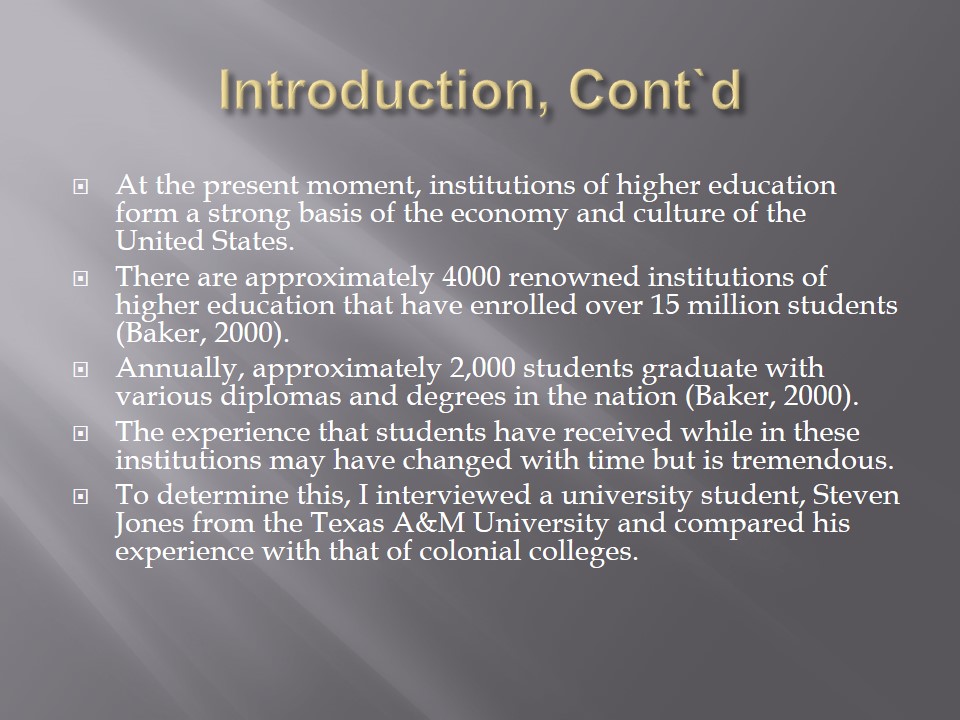
Educational Context
- The educational context of colonial colleges was concrete (Thelin, 2007).
- Students enrolled in practical courses that improved their knowledge on the physical world.
- The curriculum emphasized more on practical work that theory.
- There were also a number of programs funded by affiliate institutions that students were involved in.
- The educational context of modern universities is still concrete.
- However, Jones felt that the curriculum is currently emphasizing on the theoretical aspect of education than the practical aspect.
- Just like colonial colleges, modern universities have research programs which students can that are funded by the government and other private institutions.
- Modern universities spend approximately $26 billion annually on research and development (Baker, 2000).
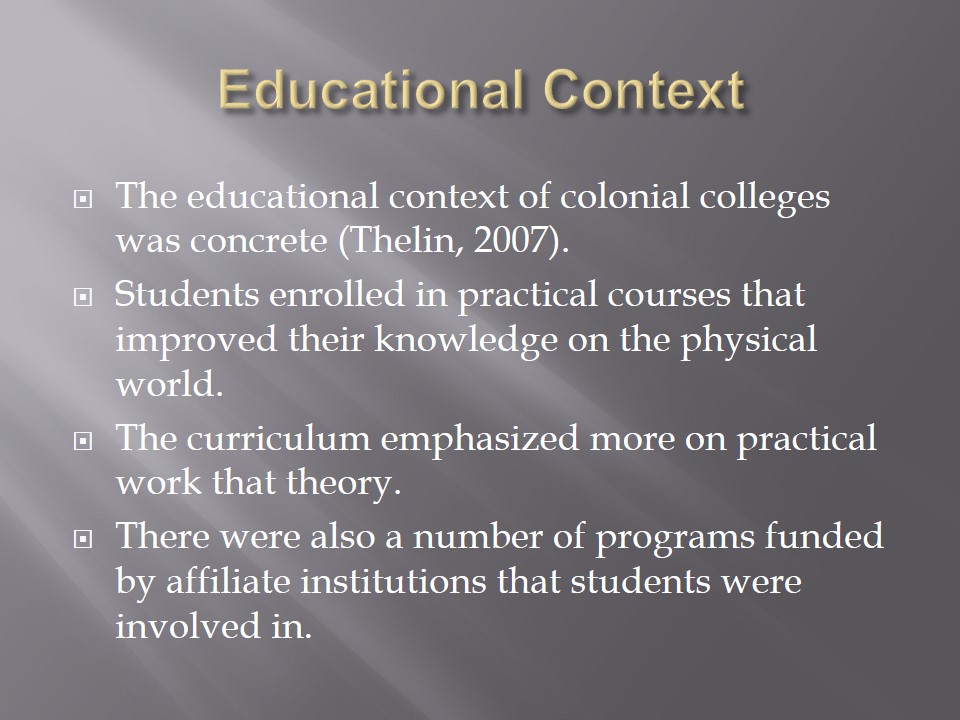
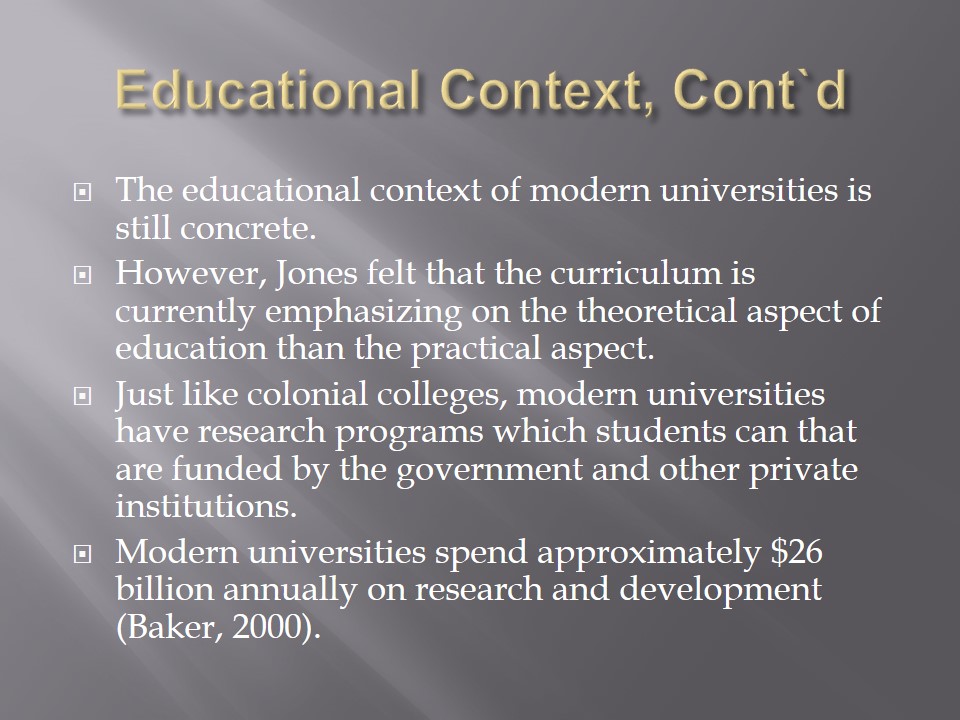
Student Culture
- There is a slight difference in the culture and students way of life in colonial colleges and modern universities.
- In colonial colleges, students were referred to as scholars.
- Through their dressing, it was possible to differentiate scholars from other individuals in the society.
- It was also possible to differential scholars of different levels.
- Buildings in these institutions have ancient architectural designs mainly from the romantic period.
- In modern colleges, students are also referred to as scholars.
- However, they do not have a special code of dressing. It is thus impossible to differential students of different academic levels and students from other members of the society.
- Students also have the culture of drinking and parting which happened rarely in colonial colleges.
- From the interview, Jones stated that the people of his age group now dress with fashion and were involved in activities that would make them look ‘cool’.
- Most of the buildings found in these institutions have modern architectural designs.
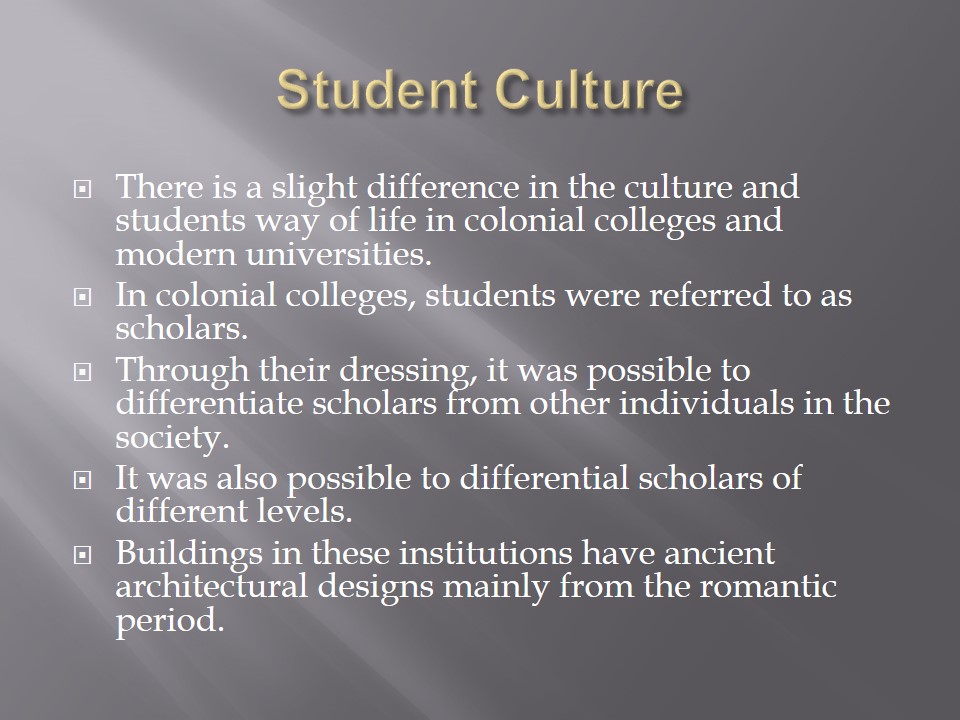
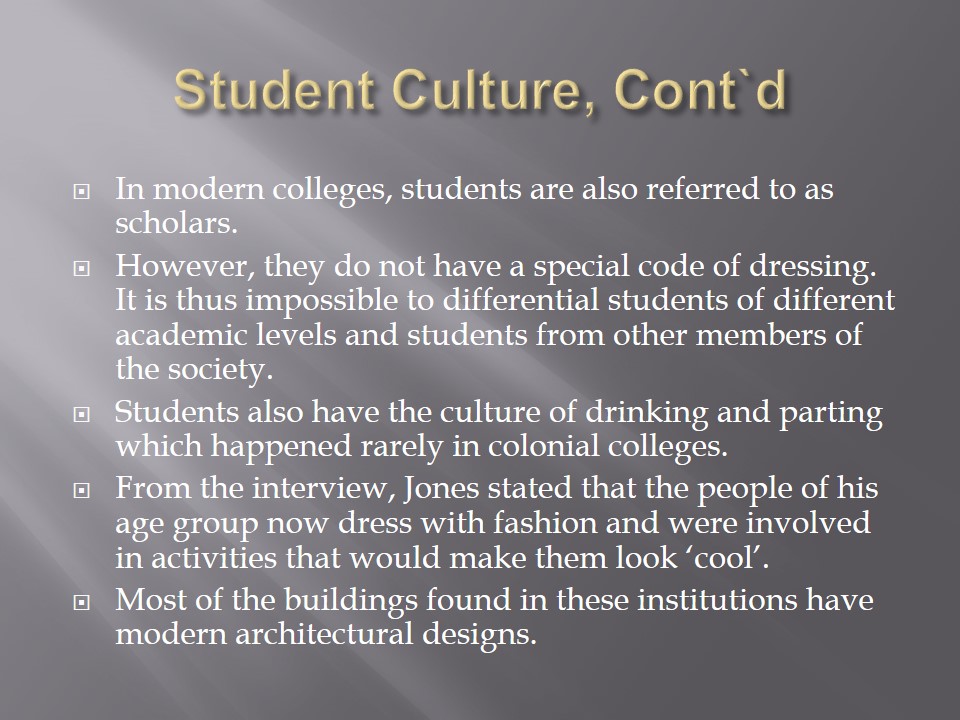
Recreation Activities
- It is essential for any institution to have recreation activities.
- During the colonial era and the early years of self rule in the United States, colonial colleges mainly used arts as the main form of recreation activity.
- This included performing arts such as symphony orchestra, drama, opera and poetry.
- Modern universities also embrace recreational activities like colonial colleges.
- Modern universities however embrace sports over performing arts.
- This may be due to the formulation and development of different forms of sports in the late 19th century and early 20th century.
- Sports such as football, basketball, baseball, soccer and hockey are among the leading activities that students are involved in (Ellsworth, 2005).
- Jones, for instance was a basketball player. He had played basketball while at Junior High and wishes to be drafted in the NBA on his senior year.
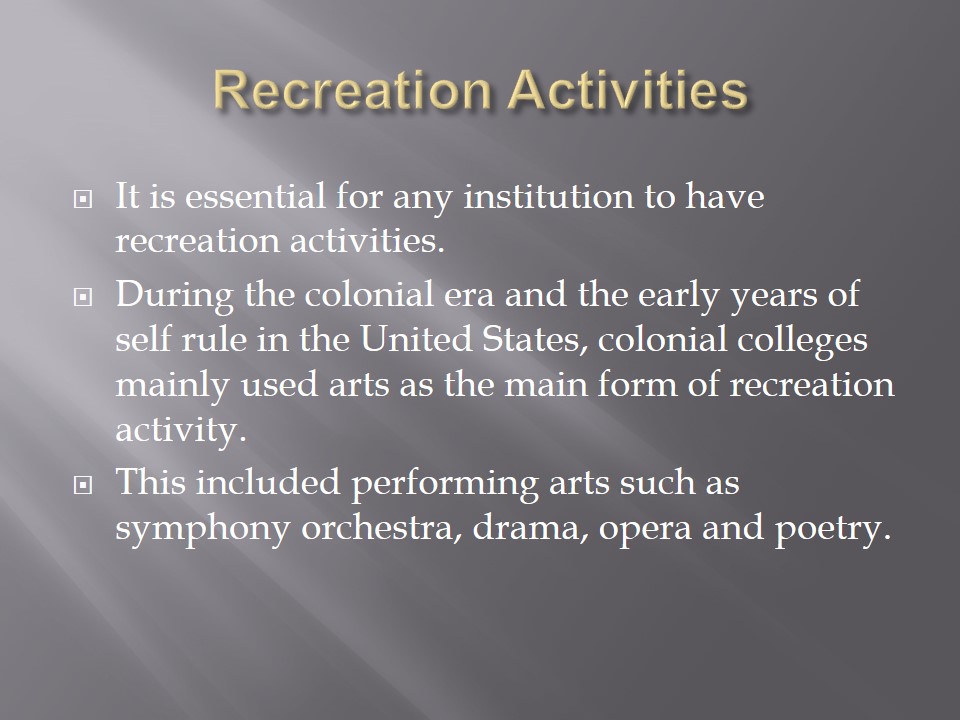
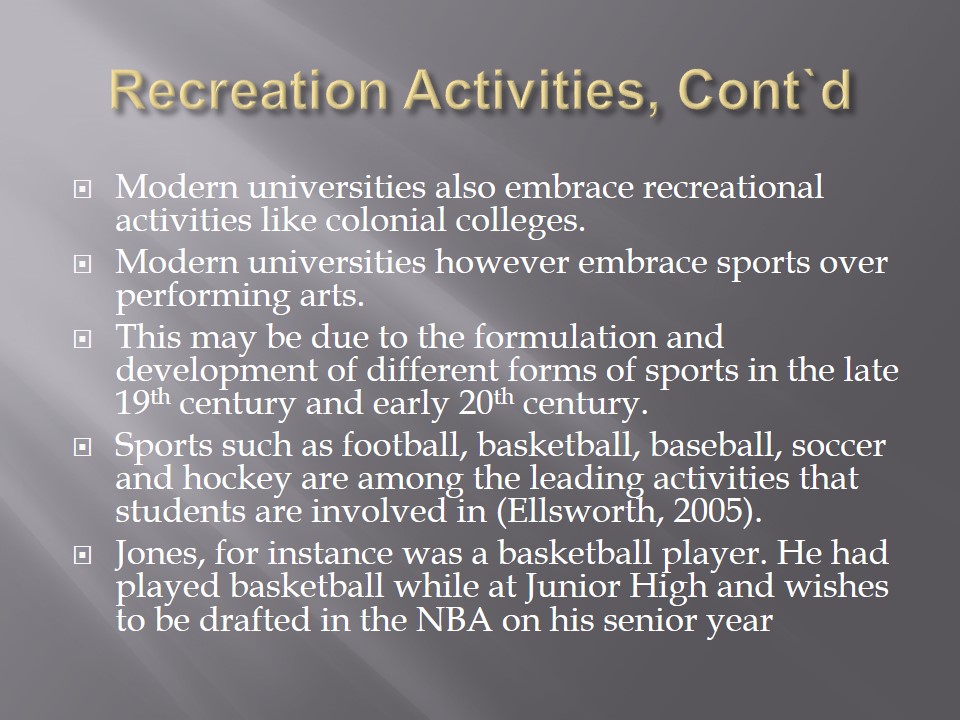
Campus Administration
- There are some differences in the manner in which colonial institutions are run as compared to modern institutions.
- Colonial colleges could only accommodate a small number of scholars. To enroll in these institutions, students had to be of high academic excellence.
- These institutions were partly financed by the government hence faced financial constrains.
- Finally, these courses offered courses of few disciplines. These included law, medicine and architecture.
- Modern universities are run in a relatively different manner.
- Despite the fact that only students who have high GPA scores and high school grades get enrolled in these institutions, the number of students which they can accommodate is much higher.
- There are a variety of courses that students can choose from ranging from sciences and arts to economics and law.
- Finally, the state allocates a higher proportion of its budget to run these institutions. This has improved the quality of higher education through research and development (Ranciere, 1991).
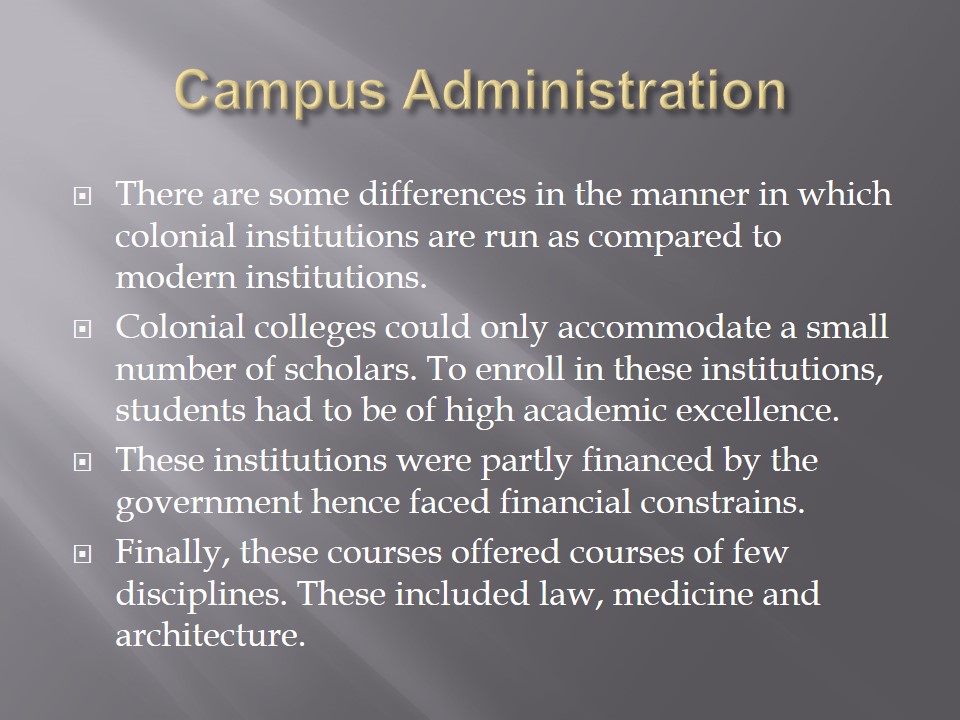
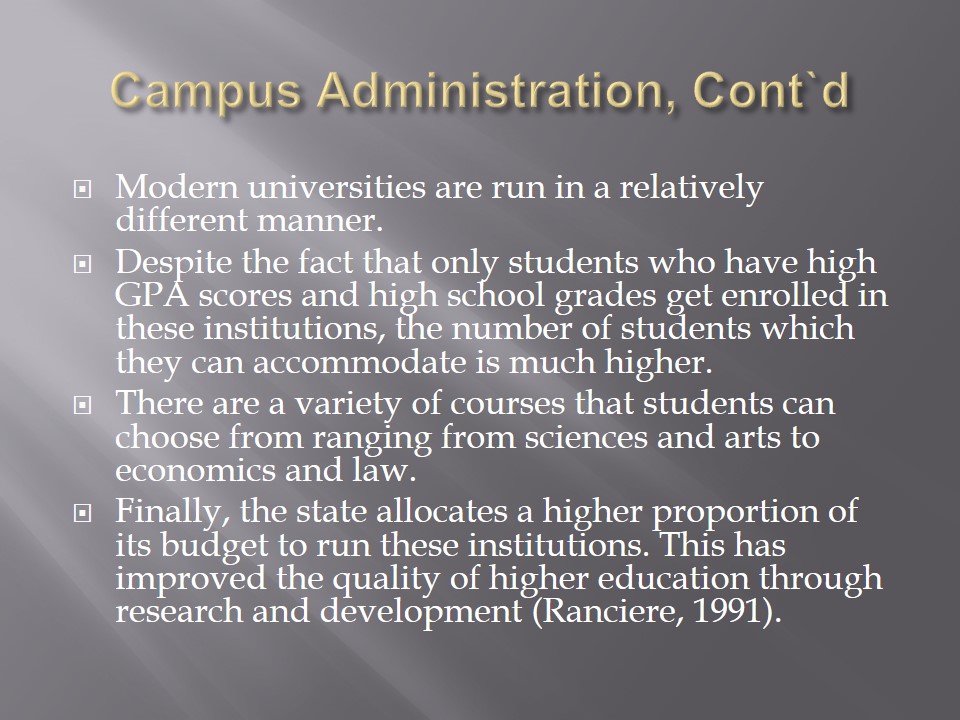
Conclusion
- Despite of the changes that are being experienced in higher education, there are a lot of similarities between colonial colleges and modern universities.
- These institutions form the base of the American culture and economy.
- It is due to this fact that they are highly respected and embraced my the American community.
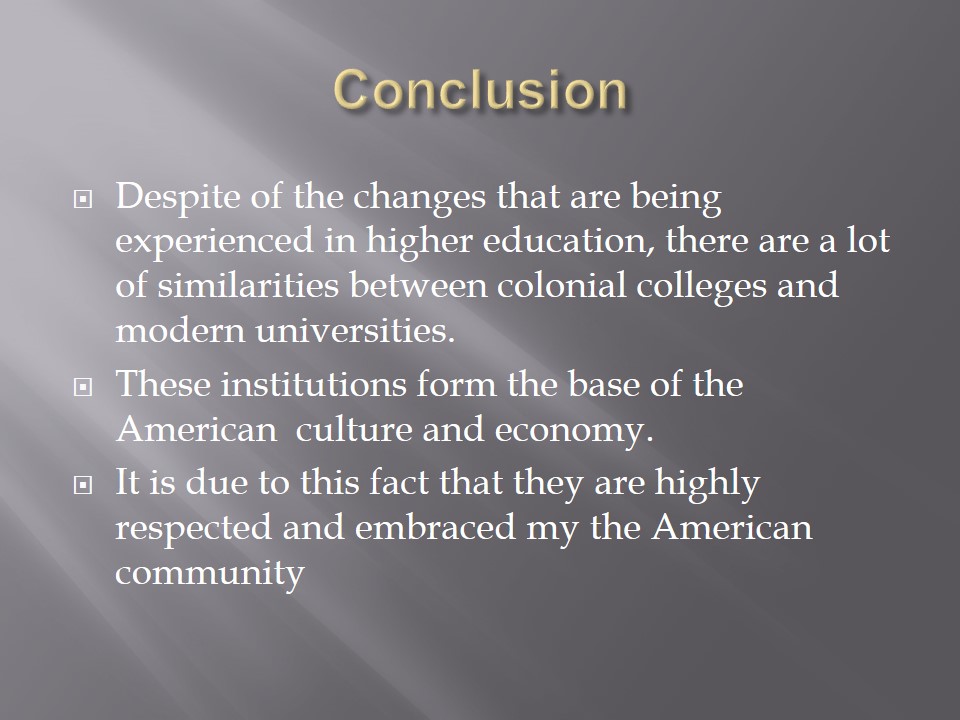
References
Baker, S. (2000). Factors enhancing sustained use of research-based instructional practices. Journal of Learning Disabilities, 33 (5), 445-457.
Ellsworth, E. (2005). Places of Learning: Media, Architecture, Pedagogy. New York: Routledge.
Ranciere, J. (1991). The Ignorant Schoolmaster: Five Lessons in Intellectual Emancipation. Stanford: Standford Universtiy.
Thelin, J.R. (2007). A History of American Higher Education. New York: Pearson Custom.
Tobin, K. and Kincheloe, J. (2006). Doing Educational Research: A Handbook. Rotterdam: Sense.